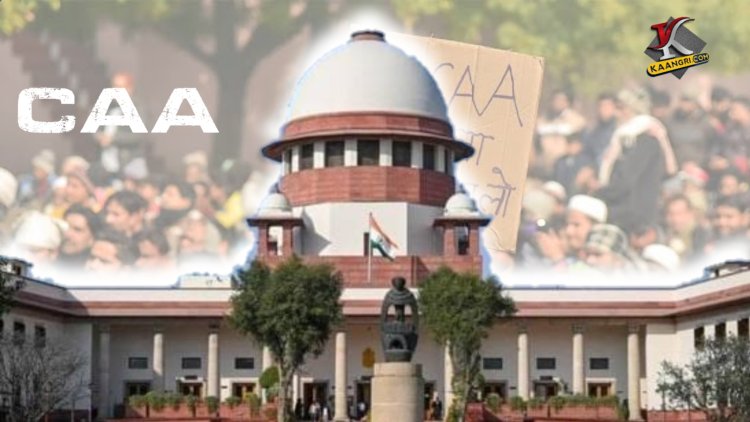Supreme Court agrees to hear petitions against CAA

New Delhi: The Supreme Court of India will hear all petitions challenging the Citizenship Amendment Act (CAA) of 2019 and the recently introduced Citizenship (Amendment) Rules of 2024 on March 19.
Background
- The CAA, passed in December 2019, expedites citizenship for Hindus, Sikhs, Jains, Buddhists, Parsis, and Christians from Afghanistan, Pakistan, and Bangladesh who entered India before 2015.
- The law excludes Muslims, sparking nationwide protests and legal challenges.
- The recently notified Citizenship (Amendment) Rules effectively activate the CAA.
Recent Developments
- The Indian Union Muslim League (IUML) petitioned the Supreme Court for a stay on the CAA and Rules.
- Several other applications seeking a stay have also been filed.
Court's Decision
- The Supreme Court agreed to hear all petitions, including stay applications, on March 19.
- The Chief Justice of India emphasized arguments should be streamlined to avoid overlap.
Key Points
- The CAA's constitutionality is under question, with arguments centered on religious discrimination.
- The petitioners claim the CAA violates the right to equality enshrined in Article 14 of the Indian Constitution.
- The Court previously issued notice to the government on the CAA challenge in December 2019 but hadn't stayed the law due to pending Rules.
This development signifies a crucial stage in the legal battle surrounding the CAA. The Supreme Court's decision in March will hold significant weight for the future of the CAA and its implications for Indian citizenship.










